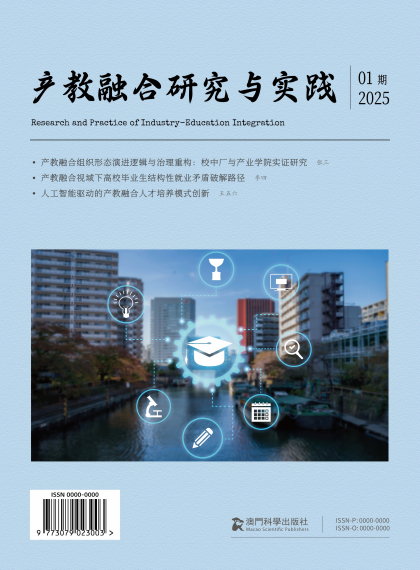摘 要:
随着我国经济社会的发展,职业教育的作用日益凸显,其中引用德国“双元制”模式成为发展的新趋势。本研究着眼于德国“双元制”模式在中国职业本科教育中的本土化适配,从实践揭示中国职业教育需要面对且修改的问题。首先,通过对德国“双元制”模式的权威文献、实地走访和深入研究,明确其在职业教育领域的优越性及具体特点。然后,结合中国职业教育现状,分行业和地区对德国“双元制”模式进行本土化适配分析,研究发现,在我国,这种模式需要根据中国的特定工业、地区甚至具体学校的情况进行微调。最后,提出具有中国特色的“中德双元制”实践路径,以推动中国职业教育的深化发展。研究结果不仅对我国的职业本科教育改革具有重要指导价值,同时,也为其他国家学习和借鉴中国经验提供了有利的参考。
关键词:德国双元制模式;中国职业本科教育;本土化适配;职业教育改革
Abstract:
With the development of China's economic and social conditions, the role of vocational education has become increasingly prominent, and the adoption of the German "Dual System" model has become a new trend in development. This study focuses on the localization adaptation of the German "Dual System" model in Chinese vocational undergraduate education, revealing the issues that Chinese vocational education needs to address and revise from practice. Firstly, by reviewing authoritative literature on the German "Dual System" model, conducting field visits, and in-depth studies, we clarify its advantages and specific characteristics in the field of vocational education. Then, combined with the current state of vocational education in China, we perform a localized adaptation analysis of the German "Dual System" model by industry and region, discovering that in China, this model needs to be fine-tuned according to the specific industries, regions, and even individual schools. Finally, we propose a "Sino-German Dual System" practical path with Chinese characteristics to promote the in-depth development of vocational education in China. The research results not only hold significant guidance value for the reform of vocational undergraduate education in our country but also provide a favorable reference for other countries to learn from and draw upon China's experience.
Keywords: German dual System model; Chinese vocational undergraduate education; Localization adaptation; Vocational education reform
--
